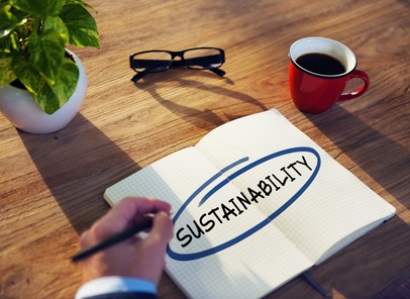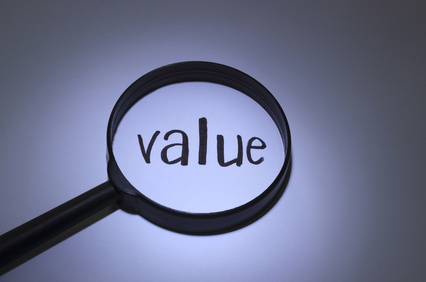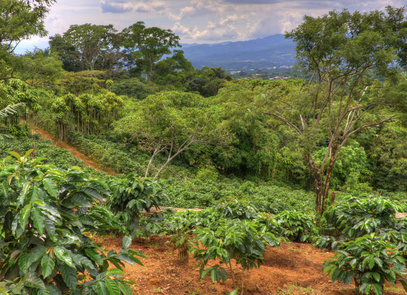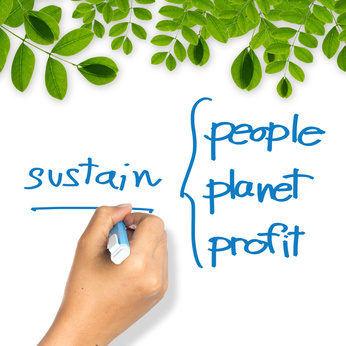 When it comes to cash flow from real estate, we LOVE “sustainable”. There’s nothing worse than vacancy and turnover to ruin your income stream.
When it comes to cash flow from real estate, we LOVE “sustainable”. There’s nothing worse than vacancy and turnover to ruin your income stream.
Of course, your income comes from tenants. And if the cost of living (food, gas, healthcare) is going up faster than their wages, it puts pressure on your tenants’ ability to pay rent.
If it goes on too long, it becomes unsustainable…and that’s bad…for both your tenant and for you.
Happily, there’s usually a solution to most of our investing dilemmas.
What if your tenants actually benefited from inflation? And once planted, tended to stay in place for a very long time?
That’s the topic of this episode of The Real Estate Guys™ radio show.
Serving up a hot cup of conversation this week:
- Your connoisseur of conversation, host Robert Helms
- His peon of palaver, co-host Russell Gray
- International entrepreneur and investor, special guest David Sewell
Investing 101 says if you buy what everyone else is buying when they are buying it, you’re going to pay more…which potentially lessens your returns.
It doesn’t mean you can’t make money. And the opportunity window isn’t an on/off switch. There are shades of grey.
As you may recall, demand for real estate slowed, then temporarily died as we entered the Great Recession.
As we’ve come out of the Great Recession, demand for real estate has gradually grown. And with that growth, it’s been harder (not impossible) to find the same quantity and quality of deals.
Turnkey operators we talk to tell us their margins are shrinking and it takes more offers to land a property. Simply stated, it’s more competitive.
Of course, right now it’s still worth doing in many markets…especially where you have properties available at or below replacement costs, relative affordability, low interest rates, and great property management.
With all that said, another tenet of investing is to look for value before others see it.
 When the real estate market was crashing in 2008-10, our friend and Summit at Sea faculty member Ken McElroy (Robert Kiyosaki’s Rich Dad Real Estate Advisor) was on a shopping spree.
When the real estate market was crashing in 2008-10, our friend and Summit at Sea faculty member Ken McElroy (Robert Kiyosaki’s Rich Dad Real Estate Advisor) was on a shopping spree.
During that window of opportunity, he acquired over $300 million of under-performing apartment buildings. He didn’t have a lot of competition, so the price was right. And he had the capital and operational savvy to immediately improve financial performance.
So Ken and his investors did very well by buying undervalued assets before they were popular.
If course, now in 2014, apartment cap rates (operating cash flow in purchase price) are lower because apartments become popular and more investors started competing for them…driving prices up.
It’s a simple concept, but it still amazes us how many people like to wait to buy at the top…all the while ignoring alternative markets and product types that haven’t yet attracted mainstream interest.
That’s a big introduction to tee up our conversation with David Sewell.
David is a Canadian native, who has been living in Latin America for the last 25 years. A former Canadian naval officer, David has been around enough of the world to recognize opportunity when he sees it.
In this case, he’s discovered an income producing real estate asset class that’s under-performing. And just like Ken McElroy, he’s found that by adding capital and operational savvy, there’s money to be made.
Except we’re not talking about residential apartments. We’re talking offshore coffee farms.
We find the premise…stimulating.
And after meeting David a few years back at a conference, we’ve been staying in touch. We’ve been fascinated by farmland investing and how it fits into a real asset investing strategy.
David’s business model is simple:
He and his team find and acquire locally owned coffee farms in places renowned for ideal coffee growing conditions. They subdivide the farmland and sell it off to investors.
A substantial portion of the sales proceeds are used to upgrade the operations and convert the farm from producing lower value commercial coffee to high premium “specialty” coffee.
The idea is to reduce operating expenses, increase volume of production and raise the price per pound of coffee. When you put that all in the pot and brew it, you get a tasty cash on cash return…without leverage.
Nice.
 To make it even better, there are some distinct tax and asset protection advantages to owning income producing assets offshore.
To make it even better, there are some distinct tax and asset protection advantages to owning income producing assets offshore.
And to top it all off, there’s a nice social benefit.
When the farm operations rehab is done, the original farm operator makes more money, has better working conditions, enjoys more stability, receives employment benefits and ends up with better skills.
So it’s not just the farm being fixed up… and the profit for the investors is more than just money.
Listen Now:
- Don’t miss an episode of The Real Estate Guys™ radio show! Subscribe to the free podcast!
- Stay connected with The Real Estate Guys™ on Facebook!
The Real Estate Guys™ radio show and podcast provides real estate investing news, education, training and resources that help real estate investors succeed.













